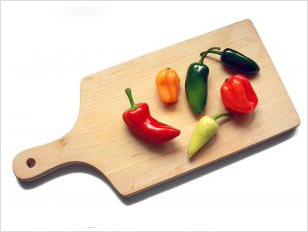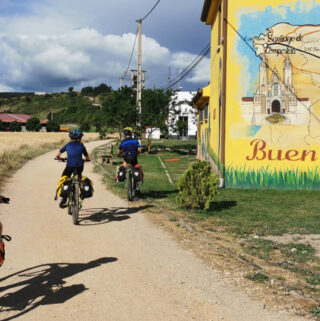You might not think it’s possible, but there are many people out there who have never, ever cooked anything in their life! Their staple diet is more than likely beans on toast, and that’s as far as it goes. If you are one of those people who have just woken up and realised it’s time to improve your culinary repertoire and nurture your hidden gastronomic talents, then these useful tips for beginners are perfect for you.
Cooking has come a long way from when our ancestors roasted wild game and local vegetation over an open fire. We’ve now discovered an incredibly large number of ways to prepare and season food, but the nature of cooking remains the same: apply heat to make food taste better. The rest is really just details that can be learned from an inquisitive spirit, creativity and trial and error.
These step-by-step instructions will guide you through the whole process of how to cook: obtaining the right tools, sourcing and preparing the fresh ingredients and using different cooking techniques to make the final product tasty and delicious… Before you know it, you’ll be writing your own recipes!
1. Find easy, tried and tested recipes
If you are a beginner and you’re learning how to cook from scratch, it’s recommended you start by finding a recipe you can follow. The best recipes to start off with are those which are tried and tested – perhaps from your mother, grandfather or a good friend. A great benefit of doing this is that if you don’t understand something in the recipe, you can call and ask! There are also a number of recipes available online, and your best bet is to find those that have good reviews and comments, and those that are short and simple – without rare ingredients and complicated methods. Just Easy Recipes promises just that: easy, tried and tested recipes!
2. Gather the freshest ingredients and the best tools
When you’re just starting to learn how to cook, don’t substitute ingredients – as they might interact in a way that you’re not aware of, and it could ruin the entire meal. When you become more experienced, however, you’ll have a better idea of predicting how introducing a different ingredient will affect the cooking process and the final flavour. Apart from gathering the right ingredients, you also need to get the right tools for the job; your kitchen needs good knives and decent pots and pans. And we suggest that you become friends with your measuring spoons and cups, and invest in a reliable kitchen scale.
3. Prepare the food you’re going to cook
The practice of getting all of your tools and ingredients together, prepared and measured, is called “mise en place” by professional chefs – and is considered important to make sure your cooking procedure is as convenient and efficient as possible. Before you turn on the stove, go through the following steps:
- Wash and clean the food, and peel if necessary.
- Cut the food into uniform slices or pieces so that they cook evenly – the bigger the pieces, the longer they will take to cook. Some types of food cook faster than others, so research your ingredients before you go ahead, and cut the pieces in sizes according to cooking time.
- To increase the flavour add salt, pepper, herbs or marinade as called for in the recipe. Be especially careful with salt, and rather add a little than a lot, you can always add more at a later stage.
4. Preheat as needed
There are some small details in this step that are often overlooked, but they are important in learning how to cook and have an influence on the outcome of your food. Keep these tips in mind when preheating:
- When heating water, remember that poaching, simmering and boiling are slightly different techniques. Poaching is very gentle, reserved for delicate foods like eggs, fish and fruit. Simmering is a little hotter, with a few small bubbles rising to the surface, and is often used for items that need a long time to cook. Boiling is when the water gets as hot as it’s going to get, and begins to evaporate into steam. So get the water to whichever state the recipe calls for, and keep it there.
- Heat the pan before adding the oil, because when the pan heats alone the metal expands, open up tiny scratches and allows oil to get in. When you add oil to an already hot pan, the oil gets hot faster. Don’t throw in the food before the oil is hot, as the food will then soak up the oil instead of cook in it. The same applies for butter, and remember to not let it burn.
- When preheating the oven, don’t get impatient. Wait for it to indicate that it’s at the right temperature your recipe requires. Most ovens will have a light or a noise that indicates this.
5. Start cooking with water
Boiling, poaching, simmering, and stewing in water is easier because you have a greater window of opportunity as to when the food is done. If you cook the food for a little too long, the result is usually still edible – whereas if you miss that narrow window of opportunity with other techniques such as frying, roasting and baking, you could end up with a ruined, burnt piece of food that’s inedible. Stick with water-based cooking until you get a feel for judging when various types of food are done.
6. Move on to dry cooking
This includes grilling, roasting, toasting, broiling and baking. Now that you know what certain foods feel like when they’re cooked, you need to be able to control the cooking process with your application of heat. This is really where you need to be attentive and patient. If you apply too much heat, the food will burn. If you apply too little, the food will be raw.
7. Advance to frying
If you master this technique, it can produce amazing results that aren’t easily achieved through other methods – such as caramelising onions so that they taste sweet, or sautéing vegetables so that they snap when you bite into them. Frying is a little more difficult than cooking with water or in an oven, because you need to juggle timing, heat and flipping/stirring.
8. Write your own recipes
As you get better at cooking, you’ll experiment and make some discoveries of your own. You’ll know you’re officially a good cook when people start asking “How did you make this? It’s delicious!” Keep your cooking skills sharp by experimenting with new ingredients and techniques, and when you produce something that’s great, remember to write the recipe down in your own, personal cook book.
Article reference: www.wikihow.com






This is an excellent feature, an eye-opener for sure!